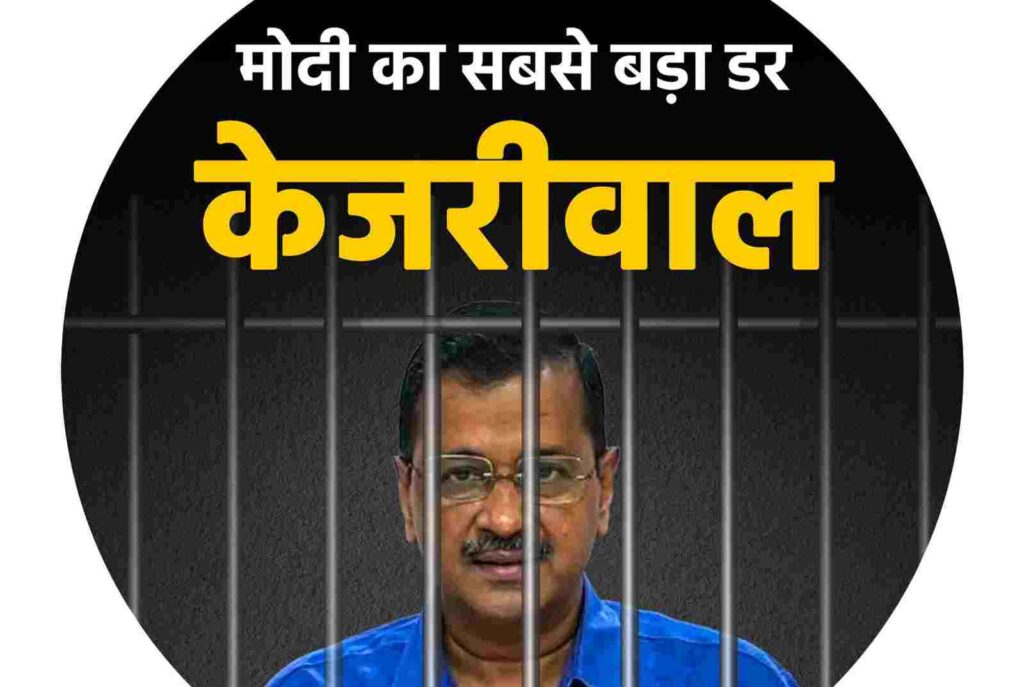AAP launched a “DP (display picture) campaign,” with party members and volunteers across social media, adorning their profile pictures with an image of Kejriwal behind bars.

Arvind Kejriwal found himself in handcuffs on March 21st as the Enforcement Directorate detained him in connection with the excise policy case. The incident sparked a digital uproar as the Aam Aadmi Party (AAP) initiated a social media campaign to spotlight Kejriwal’s arrest.
Also Read:- Unveiling the Union: Zomato CEO Deepinder Goyal’s Marriage to Grecia Munoz
AAP swiftly launched a “DP (display picture) campaign,” with party members and volunteers across platforms like Twitter, Facebook, and WhatsApp, adorning their profile pictures with an image of Kejriwal behind bars, accompanied by the text ‘Modi Ka Sabse Bada Dar Kejriwal (Modi’s biggest fear is Kejriwal)’.
Atishi, a Delhi minister and prominent AAP figure, emphasized the campaign’s aim to disseminate Kejriwal’s message nationwide. In a press briefing, she rallied support, urging people to change their social media display pictures to stand up for “saving the constitution and democracy.”
Atishi vehemently defended Kejriwal, portraying him as the sole challenger to Prime Minister Modi’s authority. She accused the Bharatiya Janata Party (BJP) of orchestrating Kejriwal’s arrest on fabricated grounds, citing his detention immediately after the announcement of Lok Sabha polls as suspicious timing.
The Enforcement Directorate’s move came after Kejriwal’s repeated summons in the excise policy case, wherein his alleged involvement in formulating policies for undue benefits to certain parties was highlighted. Despite the summons, Kejriwal did not cooperate with the probe agency.
Also Read:- Delhi Chief Minister Arvind Kejriwal Arrested Over Corruption Claims
The AAP leadership opted to forgo Holi celebrations as a form of protest against Kejriwal’s arrest. Atishi underscored the symbolic significance of Holi, portraying it as a festival representing justice prevailing over injustice. In a poignant message, she declared the party’s decision to abstain from festivities, emphasizing their unwavering commitment to fighting against what they perceive as injustice.
As the nation witnessed Kejriwal’s incarceration and the AAP’s resolute stand, the incident ignited debates on political vendettas and the integrity of democratic institutions, underscoring the complex interplay between power, governance, and dissent in contemporary India.
